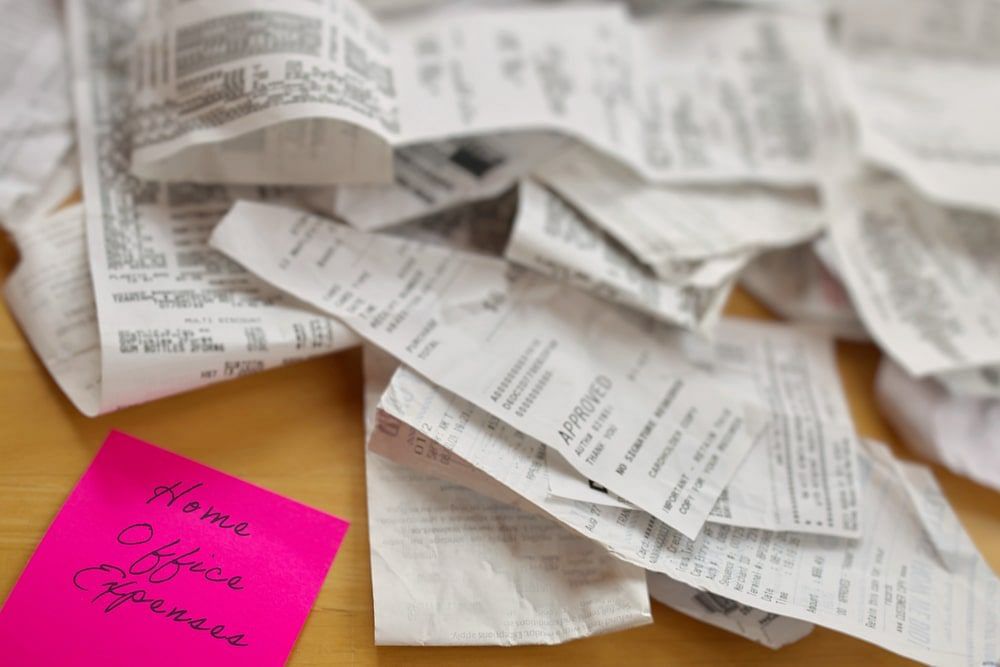
Tax obligations can be heavy on small businesses. But many business owners don't know that there are tax deductions they can utilize to lower their tax payments. There are legal ways to deduct fees, and we'll discuss all business expenses that will fall under tax deductions to help your business.
Tax deductions, or write-offs, are deductible expenses for your taxable income. These deductions help you pay smaller tax amounts at the end of the accounting period. However, you must be careful about which of your expenses to declare as deductions. Not all business expenses are eligible as write-offs.
Here are business expenses you can list as tax deductions.
100% of your expenses for advertising and promotions are eligible for tax deductions. Expenses under this category can include:
However, any promotional and advertising campaigns that sponsor political campaigns or events are not eligible as write-offs.
Home office deductions are the most common write-offs, but many small business owners don't know about them. You should utilize this deduction to capitalize on tax savings if you have a home office.
You have two alternatives from the IRS to figure your home office deductions.

As a general rule, half of the cost of qualifying meals and drinks are eligible for tax deductions as long as it meets the following criteria:
You can also deduct 100% of your meal's cost if the meal provided is used to feed employees who are rendering overtime work. Remember to keep documentation of receipts and other records such as place and date and the purpose of the meal.
Any money spent on research or starting a firm in the first year is referred to as a startup cost, including fees incurred to establish a corporation, partnership, or limited liability firm (LLC). Small businesses can deduct up to $5,000 in administrative and startup costs.
When organizational or beginning costs exceed $50,000, the eligible startup deduction of $5,000 is decreased by the amount above $50,000 (e.g., startup costs of $53,000 will incur $2,000 in deductions. This amount is taken from $53,000 - $50,000 = $3,000; $5,000 - $3,000 = $2,000). Any remaining costs must be amortized, and no deductions will be made for costs amounting to $55,000+.
Specific business insurances are eligible for tax deductions. If you have several insurances under your business, revisit them and see if you can write them off as tax deductions. Here are insurances you can deduct from your taxable income.
If you have a vehicle whose sole purpose is for your business operations, the vehicle expenses are eligible for tax deductions. There are two ways to write off the cost of using your car for business purposes. It's up to business owners which one to utilize to benefit their business.
Method #1: Standard Mileage Rate: In this method, you need to multiply the vehicle's total miles covered in the year by the standard mileage rate. For 2023, the standard mileage rate for automobiles is 65.5 cents per mile, and 63.5 cents per mile for motorcycles.
Method #2: Actual Expense Method: With this method, you track all the expenses you spend for your business vehicle—gas, oil, repairs, insurance, rental fees, and registration fees. Then, multiply it by the proportion of business-related miles driven.
For example, if the miles on your vehicle are half used for business and personal, you can multiply your expenses by 50%. But, if the car is solely for business, the percentage is 100%. It is also important to note that you can only use one method per vehicle and cannot switch for an entire year.
Some businesses offer workshops to their employees to improve their service quality. The IRS will examine your workshop expenses to see if it's used to improve skills related to your business. Anything that falls under educational purposes is 100% deductible from the taxable income.
Here are examples of business education expenses valid for deductions.
You can deduct travel expenses related to your business operations. Travel expenses should be necessary and away from your tax home to qualify. Tax home is where your business is located and provides service. Travel business expense is deductible when you are away from your tax home for an entire workday or longer.
Here are some IRS-approved travel business tax deductions.
It is important to keep records of your travel expenses. Essential details such as arrival and departure dates, the trip's purpose, and other travel expenses receipts should be documented.

The abovementioned tax deduction can be claimed through Schedule C or Schedule K-1 forms. However, there are still available personal tax deductions small business owners can utilize for their income tax returns. Here are some of them.
Charitable Contributions
Sole proprietors, partnerships and LLCs cannot write off charitable contributions as a business expense. However, business owners can put them as tax write-offs for individual tax returns.
For it to be tax deductible, your donation should be under a qualified organization. Tax payments can claim up to $300 as a deduction on form 1040. But, business owners can deduct more on Schedule A through itemized deductions.
Child and Dependent Care Expenses
You can be qualified for the child and dependent care credit if you pay someone to look after your child or a dependent. To qualify for the credit, the child receiving the care should be under 13. Other dependents should be someone who is mentally or physically unable to take care of themselves.
You can get credit between 20% to 35% of your allowable expenses based on your income. Check out IRS Publication 503 to know more about child and dependent care expenses.
Big tax deductions will significantly benefit businesses, especially small ones. There are many ways a business can reduce their taxes. Always remember to have proper documentation of receipts so that when tax season comes around, you can write off as much as possible.
If you need professional help with your taxes, Unloop offers accounting services for ecommerce and small businesses. Our expert team can handle bookkeeping, payroll, forecasting, accounts payable, and taxes. Talk to a professional for free and book a call with us today.
Unloop is the first and only accounting firm exclusively servicing ecommerce and inventory businesses in the US and Canada. With the power of people and technology, our team dives deep into COGS and inventory accounting. You are paired with a dedicated bookkeeping team that prepares accurate financial statements, financial forecasts, and can also pay bills or run payroll for you. Come tax time, everything is organized and ready to go, so you don't need to worry. Book a call with an ecommerce accountant today to learn more.